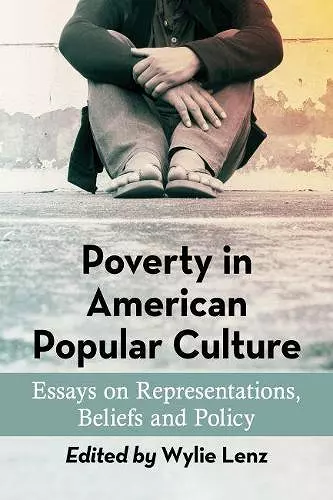Poverty in American Popular Culture
Essays on Representations, Beliefs and Policy
Format:Paperback
Publisher:McFarland & Co Inc
Published:17th Aug '20
Currently unavailable, and unfortunately no date known when it will be back

In 1964, President Lyndon Johnson declared an "unconditional war" on poverty in the form of sweeping federal programs to assist millions of Americans. Two decades later, President Reagan drastically cut such programs, claiming that welfare encouraged dependency and famously quipping, "Some years ago, the federal government declared war on poverty, and poverty won." These opposing policy positions and the ideologies informing them have been well studied. Here, the focus turns to the influence of popular art and entertainment on beliefs about poverty's causes and potential cures.
These new essays interrogate the representation of poverty in film, television, music, photography, painting, illustration and other art forms from the late 19th century to the present. They map when, how, and why producers of popular culture represent--or ignore--poverty, and what assumptions their works make and encourage.
“Lenz's thesis that purely fictional narratives may influence our view of poverty just as strongly as fact-based ones do is well supported by the scholarship gathered here.”—Journal of Popular Film and Television
ISBN: 9781476664224
Dimensions: 229mm x 152mm x 14mm
Weight: 358g
282 pages